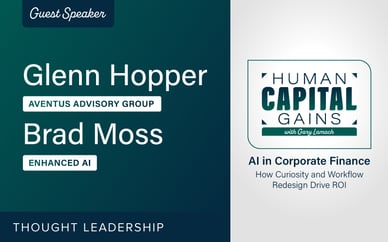AI is no longer just a topic for futuristic movies; it’s a critical business enabler reshaping workplaces. During ELB Learning’s recent webinar, “People Problem or Technology Problem? Rethinking Change Management for AI Value Creation”, Josh Penzell, VP of AI Services, and Ryan Allenbach, CEO of Agreed.io, shared their expertise on navigating the organizational changes brought by AI adoption. Here’s a closer look at the key takeaways from the session.
Understanding the AI Productivity Paradox
Josh opened the session by addressing the AI Productivity Paradox: while AI holds immense potential to boost productivity, many organizations struggle to harness its value effectively. According to McKinsey, 60% of jobs have automatable tasks, yet only 5% can be fully automated. This underscored a key insight: AI is not about replacing people but augmenting their capabilities.
Josh emphasized that AI should be treated as a new hire rather than just another tool. Shifting this mindset helps organizations leverage AI as a collaborator, enabling teams to innovate and deliver more value.
The Capacity for Change: Closing Organizational Gaps
Ryan explored the challenges organizations face in adapting to AI’s rapid evolution. He highlighted the disparity between decision-making authority and specialized context:
- Frontline employees often possess the most detailed knowledge about processes but lack decision-making power.
- Executives hold decision-making authority but are often removed from the specifics of daily operations.
This gap limits the organizational capacity for change, creating bottlenecks in AI adoption. To bridge this gap, Ryan introduced strategies to improve visibility, collaboration, and trust across all levels of the organization. For a more thorough understanding of the strategies presented, we recommend watching the webinar recording.
The Pitch-Draft-Agree-Plan-Results Framework
One of the session’s highlights was introducing the Pitch-Draft-Agree-Plan-Results (PDAPR) framework. This structured process provides a roadmap for surfacing, vetting, and executing innovative ideas:
- Pitch: Generate and prioritize ideas from all levels of the organization.
- Draft: Refine the idea, quantify its value, and identify stakeholders.
- Agree: Build consensus by addressing risks and validating benefits.
- Plan: Align resources, timelines, and budgets.
- Results: Implement, monitor, and iterate for continuous improvement.
This framework empowers employees at all levels to take ownership of AI-driven initiatives, fostering a culture of innovation and accountability.
Why AI Needs Guardrails and Coaching
Both speakers emphasized that AI adoption isn’t just about technology—it’s about people. Successful organizations must focus on AI literacy and coaching to ensure employees feel confident and motivated. For example, Microsoft research revealed that employees using AI report higher satisfaction and creativity in their roles.
Josh shared a powerful insight: “The AI you use today is the worst AI you’ll ever use.” Organizations must prioritize continuous learning and guardrails to maximize AI’s value while mitigating risks like bias or misuse.
Actionable Steps for AI Change Management
- Build Organizational AI Literacy: Equip employees with the skills to use AI effectively and responsibly.
- Strengthen Cross-Functional Collaboration: Create processes for vetting ideas and sharing insights across departments.
- Empower Employee-Led Innovation: Encourage grassroots ideas and provide mechanisms to turn them into actionable business cases.
- Implement a Mechanism for Change: Use frameworks like PDAPR to structure change initiatives and reduce friction.
- Foster Accountability at All Levels: Ensure middle management has clear responsibilities for supporting change efforts.
The Road Ahead: Why AI Adoption Is a Must-Have
As Ryan pointed out, “Change is painful, but the organizations that embrace it are the ones that will thrive.” With AI evolving rapidly, businesses must rethink traditional change management approaches to stay competitive.
The message was clear: AI adoption isn’t optional. It’s an opportunity to reimagine workflows, unlock innovation, and create lasting value. If this feels unchartered for you, ELB Learning can help. From foundational knowledge and advanced strategies to AI development and implementation, we’re with you every step of the way. Our activities equip you with the right tools and insights, while our deliverables ensure tangible outcomes for your AI initiatives. Let us help you achieve your business goals.
Missed the Webinar? Watch It On-Demand! For those who couldn’t attend, the full webinar recording is available. Watch now to gain more insights and strategies for driving AI adoption in your organization.








